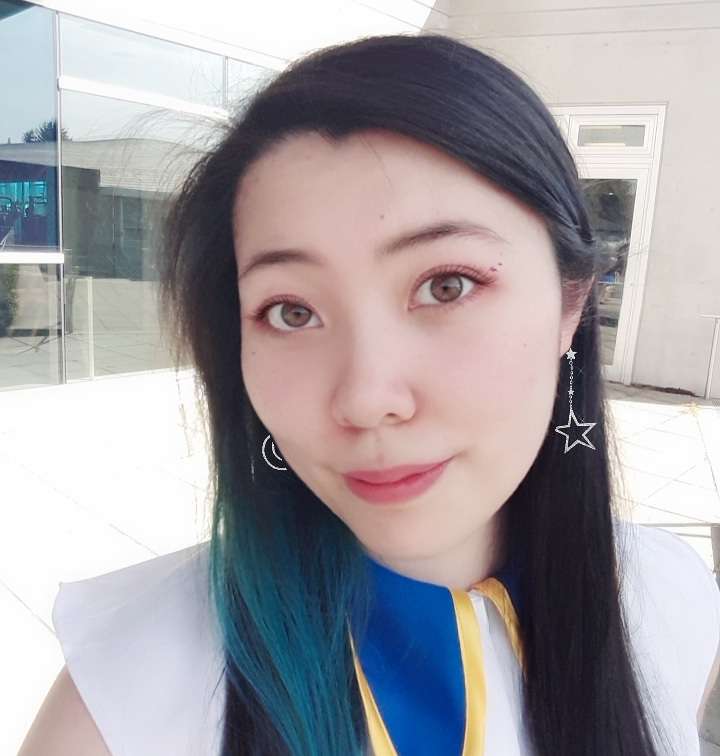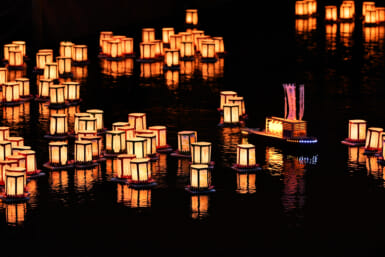Japanese idols have been a mainstay in Japan for a long time, permeating both music, entertainment and wider pop culture. The significance of this specific type of entertainer is not lost outside the country. This is evidenced by the rise of “kaigai idols.” We recently spoke to four of them to better understand what it takes to make it big online and some of the wider implications that come with appreciating Japanese culture abroad.
Originating Overseas
According to Melancholiaah!, an American-based performer who has been active since 2005, Kaigai idols usually “attempt to emulate idol culture in their respective countries, most often outside Japan. However, some foreigners who are active in Japan still use the term to describe themselves or associate closely with it.”
Like most subcultures, it’s hard to pinpoint exactly when the kaigai phenomenon started, though one famous example is Charmed actress Alyssa Milano, who was a kaigai idol back in the 1980s. Other well-known kaigai idols include Heidi Haibara of the group Merkmal Mermal and Galaxy Girl PAiDA. In more recent years, the surge of fans for the successful anime Love Live! School Idol Project series also contributed to the overall interest in idols.
“A lot of the community got their beginnings in other hobbies originating from Japan, such as dance and song covers,” says 2.5 idol VTuber Ruuri. This includes British kaigai idol Beckii Cruel.
“In 2009, she went viral for her dance covers which started the first wave of the kaigai net-idol,” continues Ruuri. “While she wasn’t the first to make this kind of content online, she was one of the first among us to be invited to Japan for it.”

HostessMisaki
The Kaigai Style
In the early years, music by kaigai idols took the form of traditional pop songs. This featured energetic, positive and uplifting themes, as well as catchy tunes. These days there is diversity in genres and styles, expanding to metal, citypop, rap and more. HostessMisaki, a Canadian kaigai idol, says the versatility of the genre might be one of the biggest reasons why it’s so popular.
When asked to describe his personal brand of music, Melancholiaah! shares what sets his music apart, the people he’s worked with and his inspirations.
“I really like to make shoegazing music,” he says. “I’ve worked with a handful of shoegaze and dream pop artists in Japan like Nuit, Azusa Suga and Yusuke Hata of Cruyff in the Bedroom, to create music that both emulates the genre and can be showcased in the same idol-type performance style I have been doing. I also write a lot of themes around my experiences with mental health issues.”
Dance performances also play a big part in kaigai idol culture. Ruuri and HostessMisaki, for instance, both use VTubing to connect with their fans over gaming and karaoke streams. They also release dance cover videos online. The goal for kaigai idols can range from simply wanting to improve their skills and meeting like-minded individuals to going full-time as artists. In this vein, the kaigai branch embodies the Japanese idol culture of learning, growing and improving oneself as fans cheer you on your journey to the top.
Growing Pains as an Idol Abroad
Despite possessing a wholesome and relatively harmless goal of connecting with fans and uplifting others, the kaigai idol community has come under harsh criticism from the wider internet space.
This year, California-based idol group Sorb3t went viral for a video originally posted on TikTok. The group members taught their fans how to perform what’s known as “call and response.” This is a type of cheer that idols and fans use to interact with each other during performances. It included the Katakana pronunciation of the English word “strawberry.”
The post caused uproar outside of the kaigai idol community. Many misunderstood it, believing it was a form of racism regarding the way Japanese people speak English.
Misunderstandings, cyberbullying and the double-edged sword of internet fame aside, this controversy sparked a renewed focus on a very familiar discourse: the line between cultural appreciation and cultural appropriation.
“Are you representing Japanese culture in a way that insults or otherwise harms the culture? If the answer to that question is no, then I think you’re fine,” says HostessMisaki.
“When it comes to partaking in any aspect of something that is inspired by another country’s culture, it is important to remain respectful of the place and the people you are gathering your inspiration from. If you just use the aspects of ‘kawaii kooky Japan’ as a marketing tool to go viral without really taking the time to engage and educate yourself in the culture and customs, then you can liken that to appropriation,” adds Ruuri.

Melancholiaah! performing
Advice for Aspiring Kaigai Idols
In today’s cynical world, it’s heartwarming to hear about the existence of groups of artists and performers who simply want to make their fans smile. While the style of entertainment can be an acquired taste, the humble and vulnerable beginnings that most of these kaigai idols put forth are relatable and human, no matter what field you might be personally pursuing. For those who feel inspired to embrace becoming a kaigai idol, Cherry Wallflower has some advice. She’s a self-produced overseas indie idol from Florida.
“Pick a song that you really like and learn the choreography and lyrics for it,” she says. “Practice until you feel confident. Film it and upload it online to share your work with the world. Keep covering your songs until you find the songs that suit your voice and personality best. When you get tired of covering songs, you can work on original music and fine tune your personal brand and stage personality. Once all that has been accomplished, you’re a full-fledged idol.”
“It is easy to compare yourself to people who are on big stages at big events and talk yourself out of it,” Melancholiaah! adds. “But if you really have a passion for Japanese music or want to try to challenge yourself to create your own original work, please don’t let that discourage you. While what we do may not be for everyone, it is for some people. If you are reading this and studying about it, that means this type of thing is for you, too. Don’t bite off too much and just jump in if you really have love and adoration for idols. We all start somewhere.”









